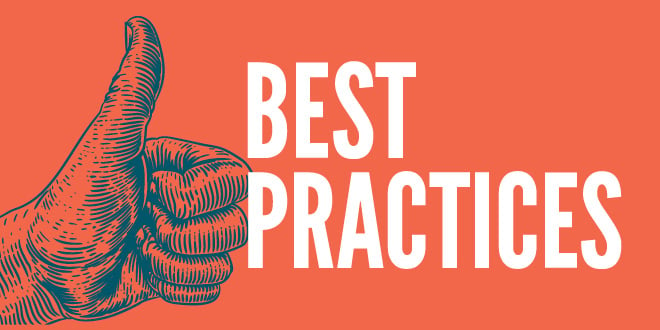What are the Best Practices for Using Alternative IDs?
As the industry moves away from the use of third-party tracking cookies, there are several solutions taking shape to help target users while keeping...
3 min read
Ray Kingman
:
September 23, 2013
Last week, USA Today reported that Google is working on an alternative to third-party cookies, which has significant implications for advertisers and stakeholders that earn their keep from the current paradigm of online tracking. The anonymous identifier for advertising, dubbed “AdID,” is largely a mystery at this point, but it’s not too early to consider what it means for all parties involved.
What It Might Look Like
Not too much is known about Google’s third-party-cookie killer right now. According to the initial report, which quotes an anonymous source, AdID would be accessible to advertisers and ad networks that agree to a basic set of guidelines. It would also give consumers more control over how they’re tracked online and who can target them by using information about their online behavior. AdID might also be linked to Google’s first-party login information (e.g., Gmail, Chrome, Android, Google+, etc.).
“A universal, user-managed AdID is, I suspect, the goal of the design,” says Ray Kingman, CEO of Semcasting, a provider of data and audience targeting solutions. “I suspect Google would think big on this, and the ability to link all the user’s devices to the location and their online actions would remain at the core of its mission.”
Kingman adds that Google is probably aiming to solve the multiple-cookies-per-person problem, which renders much of the cookie-based world ineffectual. Lastly, giving users more control and self-management over their experience would be “the window dressing to hang on a reality that this is still based on one-to-one tracking – maybe just a smarter cookie with better coding, at the end of the day.”
Based on the information known so far, one could presume that Google’s goal is to get broad coverage of “ownable” impressions in order for AdID to be a replacement for the cookie. “That’s a pretty darn smart play,” says Alan Schulman, vice president of global digital marketing and brand content at SapientNitro, a digital marketing agency.
“If it’s executed properly, AdID will take all of the information about the impression – including time stamp, browser header, IP address, unreliable cookie, etc. – and assign a persistent ID to the user so that every time a user is seen, the same ID can be used,” he says.
Schulman adds that the “AdID” moniker is quite similar to “Ad-ID,” an industry standard for identifying advertising assets across all media platforms developed by the American Association of Advertising Agencies (4A’s) and the Association of National Advertisers (ANA). “I would have chosen a different name for the initiative, since it is already in use,” he says.
Why Create Another Alternative?
Google isn’t the first company to try its hand at pushing the cookie envelope. Mozilla, for instance, proposed blocking all third-party cookies by default from its Firefox browser and allowing cookies only from first-party (i.e., visited) domains, a proposition that got strong pushback from the Interactive Advertising Bureau (IAB). The plan has since been put on hold by Mozilla.
Meanwhile, Apple’s Safari browser blocks third-party cookies by default, and its iOS mobile platform boasts its own advertising identifier. Then there’s Do Not Track, the Digital Advertising Alliance and a host of other solutions.
So why is Google apparently intent on releasing another alternative into the wild?
“I suspect there is on some level within Google an internal consensus that the debate over the traditional cookie and tracking was drifting dangerously close to the rocks, Kingman says. “A public debate constantly being fueled by the press, a motivated FTC chair and the industry constantly breaking ranks over privacy – whether Mozilla, Microsoft or the W3C – none of this could inspire confidence. On top of that is the pure financial and competitive leverage to be had in positioning an alternative to cookies in the mobile world.”
What AdID Means for the Industry
For one thing, the introduction of AdID would seem to consolidate power in the hands of two giants: Google and Apple. This could be a concern for the industry at large, according to stakeholders quoted in the USA Today article.
For agencies and publishers using DoubleClick for Advertisers and DoubleClick for Publishers, AdID seems like a boon, according to Ari Paparo, senior vice president of product management for social commerce company Bazaarvoice. “If you are a third-party ad-tech vendor, RTB participant with your own cookie space or anyone else who transacts a lot of business with the Google ad-tech stack, but at an arm’s length, things are not as rosy.”
Google AdID highlights the three aspects of the privacy debate: tracking individuals, reselling first-party data and the lack of controls users have over what information is collected about them. Kingman says the industry “needs to put the press releases about self-regulation in the drawer once and for all and put a stake in the ground” with these commitments:
“If Google uses their leverage to truly pull this off, it will make the industry-standard cookie a diluted mechanism overpowered by Google,” Schulman says. “It will be interesting to see and hear what the IAB and 4A’s digital committee have to say about it. Will they endorse this?”
We reached out to the IAB and 4A’s and received no response. The ANA and Direct Marketing Association (DMA) each say they have no comment on AdID.
DMconfidential.com article:
http://www.dmconfidential.com/google-adid-an-alternative-to-third-party-cookies-and-what-it-means-for-marketers/

As the industry moves away from the use of third-party tracking cookies, there are several solutions taking shape to help target users while keeping...
1 min read
Comments on the DOC Green Paper and the FTC Preliminary Staff Report: Creating a Privacy Friendly Data Policy Introduction In our response we...
If technology is driving the union between marketing and advertising, who will end up steering the car?